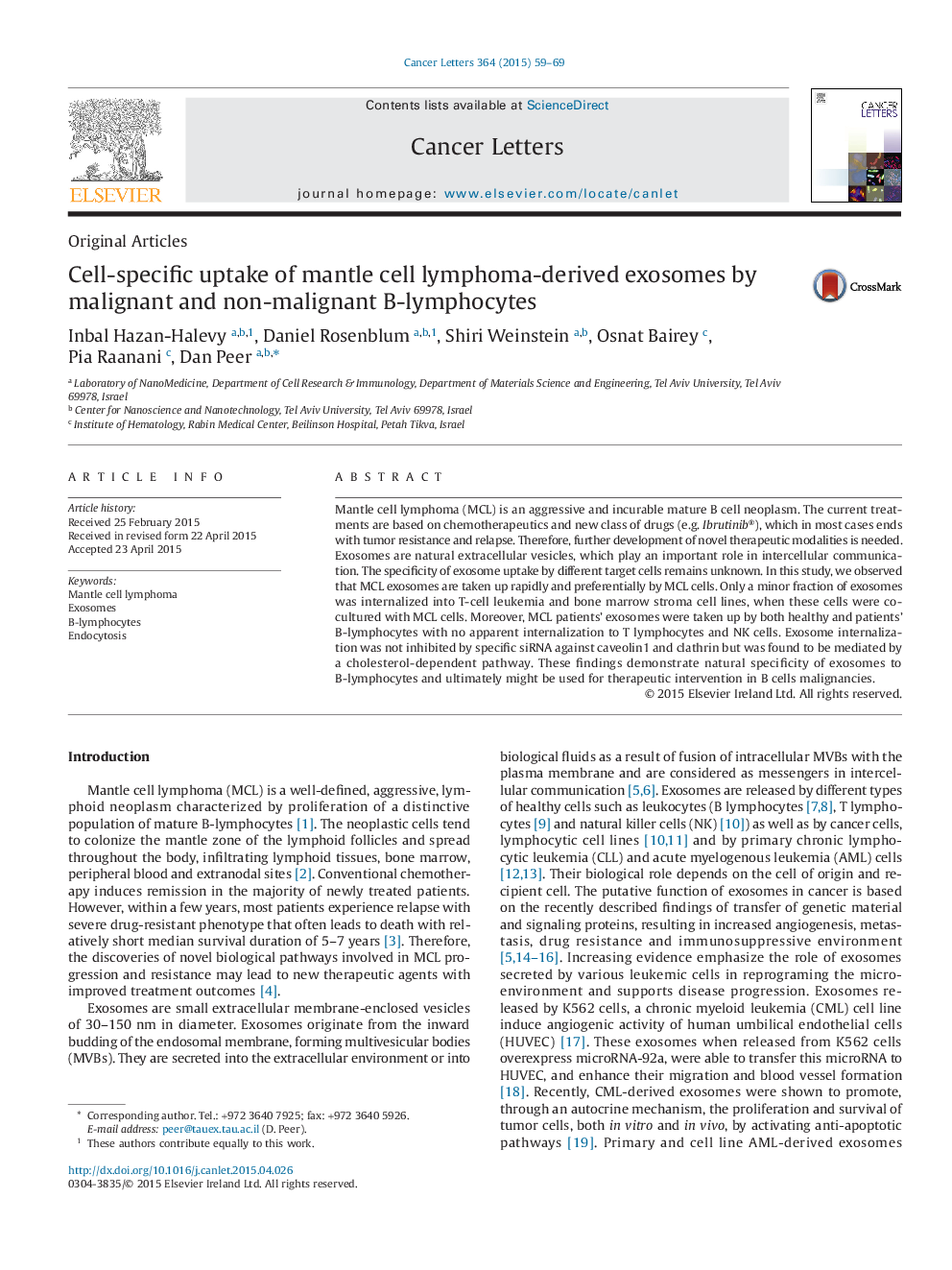| Article ID | Journal | Published Year | Pages | File Type |
|---|---|---|---|---|
| 2112432 | Cancer Letters | 2015 | 11 Pages |
•MCL cells release exosomes that are taken up rapidly by B-lymphocytes.•MCL exosomes are preferentially internalized into B-lymphocytes rather than T-lymphocytes, natural killer or stroma cells.•MCL exosomes are internalized into MCL cells, in a non clathrin, non caveolin1 but cholesterol-dependent pathway.
Mantle cell lymphoma (MCL) is an aggressive and incurable mature B cell neoplasm. The current treatments are based on chemotherapeutics and new class of drugs (e.g. Ibrutinib®), which in most cases ends with tumor resistance and relapse. Therefore, further development of novel therapeutic modalities is needed. Exosomes are natural extracellular vesicles, which play an important role in intercellular communication. The specificity of exosome uptake by different target cells remains unknown. In this study, we observed that MCL exosomes are taken up rapidly and preferentially by MCL cells. Only a minor fraction of exosomes was internalized into T-cell leukemia and bone marrow stroma cell lines, when these cells were co-cultured with MCL cells. Moreover, MCL patients' exosomes were taken up by both healthy and patients' B-lymphocytes with no apparent internalization to T lymphocytes and NK cells. Exosome internalization was not inhibited by specific siRNA against caveolin1 and clathrin but was found to be mediated by a cholesterol-dependent pathway. These findings demonstrate natural specificity of exosomes to B-lymphocytes and ultimately might be used for therapeutic intervention in B cells malignancies.
